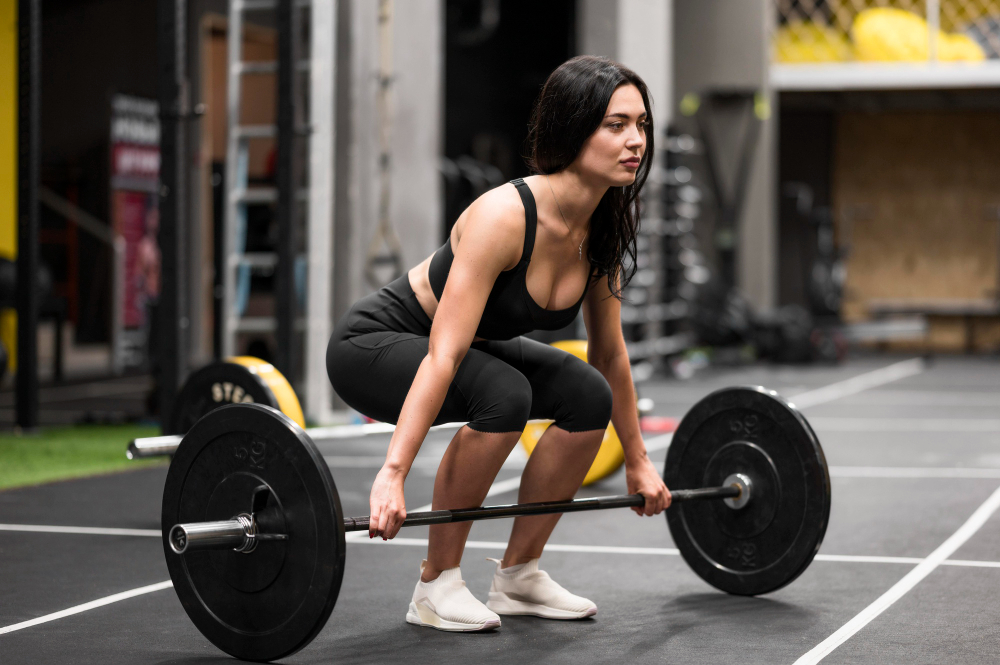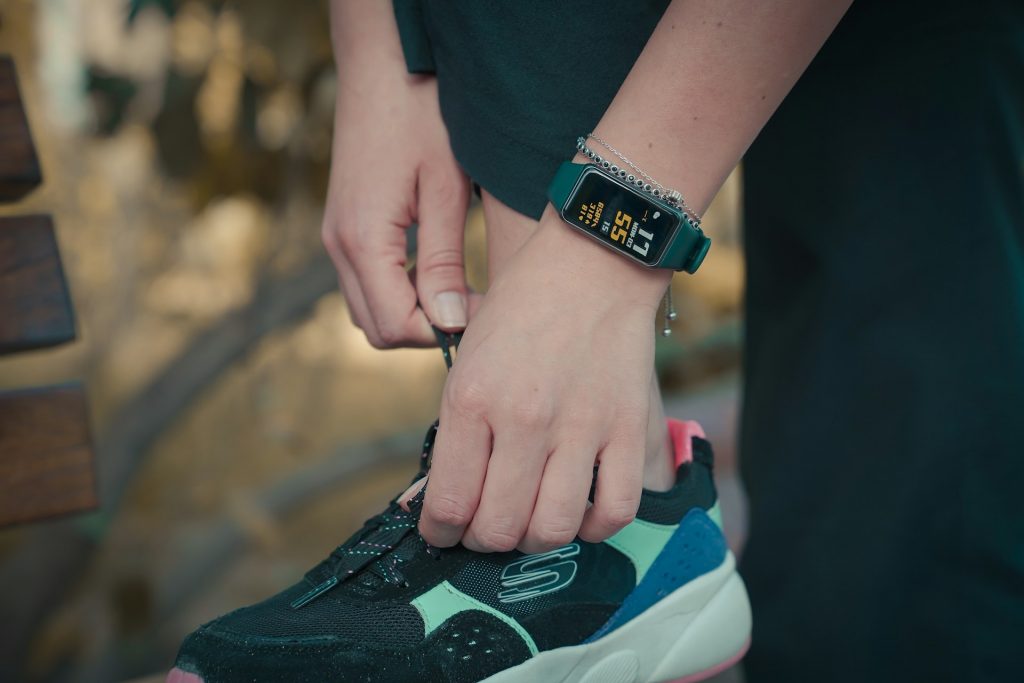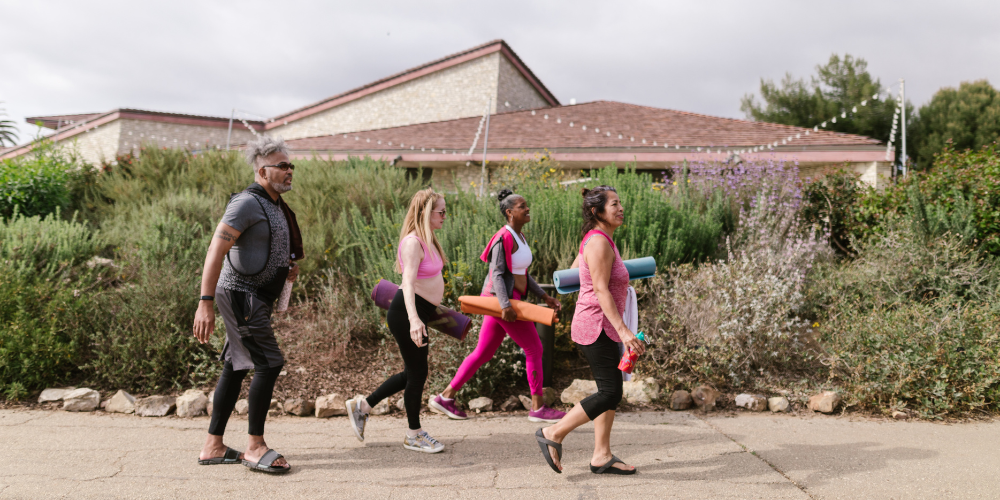Pushing your body to its physical limit—when your breathing sharpens, speech becomes difficult, and muscles burn—often brings you close to your VO₂ max. This performance metric measures how much oxygen the body can consume and use during peak exercise, and it holds strong value for cardiovascular health and endurance capacity.
VO₂ max doesn't stay the same forever, though. It typically declines with age, even in the fittest individuals. Still, with the right kind of training, it’s possible to delay this natural drop and maintain high levels of fitness well into later decades.
Why VO₂ Max Still Matters
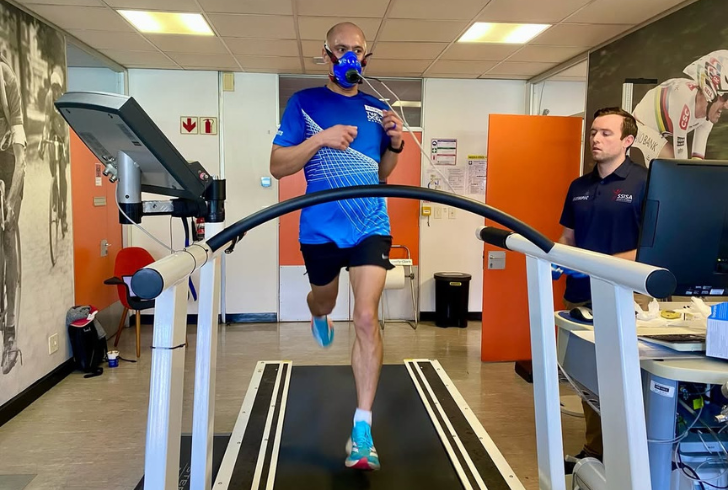
Instagram | @robinlary | VO2 max gives athletes a powerful starting point to boost energy and endurance safely.
Among all the ways to assess health and performance, VO₂ max stands out. The exercise physiologist Dr. Todd Buckingham of PTSportsPRO in Michigan says, "It measures how well your body breathes in oxygen, moves it to your muscles, and converts it into energy during max effort."
He adds that while VO₂ max doesn’t tell the whole story, it sets the stage for everything else in endurance performance. Once this number is known, athletes can then work on improving efficiency, lactate threshold, and long-duration power.
The measurement is most accurate when done in a lab, using a face mask and treadmill or bike to assess oxygen and CO₂ levels during a 12–15 minute increasing-intensity effort. While wearables offer estimated VO₂ max readings, studies show they can be off by up to 10%. Still, they provide a useful starting point.
How Age Affects VO₂ Max
Your body’s peak VO₂ max occurs early in life. Men tend to hit their top numbers in their mid-to-late 20s, while women often peak a bit later, usually in their early 30s. After that, values begin a slow decline. Dr. Buckingham notes that, on average, people lose about 10% of their VO₂ max each decade beyond 30.
Interestingly, the decline can be more dramatic in athletes than in inactive people. A 2024 Experimental Gerontology study suggested that active women showed greater VO₂ max loss over time compared to sedentary women, but still maintained significantly better scores overall.
This drop stems from several internal shifts. Heart rate and stroke volume both decrease, meaning less blood (and less oxygen) is pumped per beat. At the same time, circulation becomes less efficient.
Add in sarcopenia (age-related muscle loss), and oxygen use declines even further. Since fat tissue lacks mitochondria and capillaries, higher body fat also limits oxygen delivery and energy conversion.
VO₂ Max Score Chart by Age and Gender
Wondering how your VO₂ max compares with others in your age group? The following tables provide average VO₂ max ranges categorized by age and fitness level.
VO₂ Max for Men
| Score Category | Age ≤29 | Age 30–39 | Age 40–49 | Age 50–59 | Age 60–69 |
| Excellent | ≥53 | ≥50 | ≥45 | ≥43 | ≥41 |
| Good | 44–52.9 | 42–49.9 | 39–44.9 | 36–42.9 | 36–40.9 |
| Average | 34–43.9 | 31–41.9 | 27–38.9 | 25–37.9 | 23–35.9 |
| Fair | 25–33.9 | 23–30.9 | 20–26.9 | 18–24.9 | 16–22.9 |
| Poor | ≤24.9 | ≤22.9 | ≤19.9 | ≤17.9 | ≤15.9 |
VO₂ Max for Women
| Score Category | Age ≤29 | Age 30–39 | Age 40–49 | Age 50–59 | Age 60–69 |
| Excellent | ≥49 | ≥45 | ≥42 | ≥40 | ≥37 |
| Good | 39–48.9 | 37–44.9 | 35–41.9 | 34–39.9 | 33–36.9 |
| Average | 31–38.9 | 28–36.9 | 25–34.9 | 22–33.9 | 21–32.9 |
| Fair | 24–30.9 | 20–27.9 | 17–24.9 | 15–21.9 | 13–20.9 |
| Poor | ≤23.9 | ≤19.9 | ≤16.9 | ≤14.9 | ≤12.9 |
Source: INSCYD offered information based on articles on exercise physiology and other research projects.
How to Slow Down VO₂ Max Decline
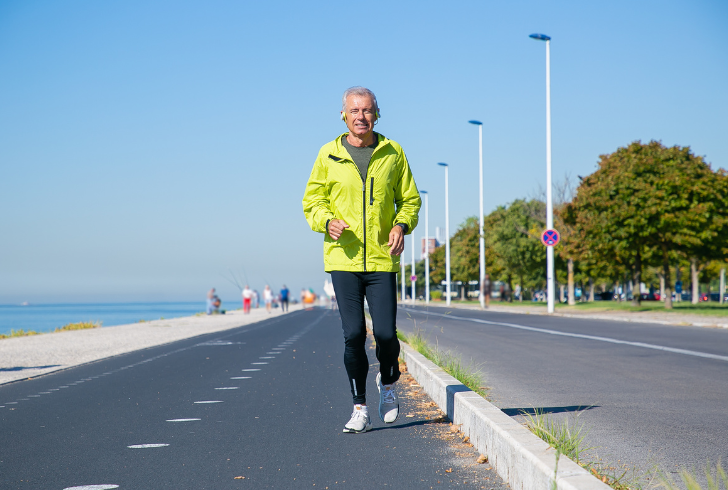
Freepik | pch.vector | Smart training helps your body hold on to a strong VO2 max even as you age.
Aging is inevitable, but the rate at which VO₂ max drops? That part can be managed.
Dr. Buckingham points out that consistent exercise has a significant impact. “We get old because we stop exercising, not the other way around,” he says. Staying active won’t completely stop the aging process, but it certainly slows the drop in aerobic capacity.
Low-intensity training, especially what’s known as zone 2 training, is incredibly valuable for preserving VO₂ max. These workouts increase both mitochondria (which generate energy) and capillaries (which deliver oxygen to cells). More mitochondria and capillaries mean better oxygen efficiency across the board.
High-intensity sessions also matter. They boost the size and capacity of mitochondria, though they demand longer recovery times. That’s why the 80/20 method works well: 80% of training should stay in lower zones, while 20% can push toward higher intensities.
Strength training also enters the equation. As muscle mass declines, so does the body’s ability to use oxygen. Maintaining lean tissue supports VO₂ max by ensuring more mitochondria and oxygen-processing power remain intact.
Higher VO₂ Max Could Mean Longer Life
The benefits go beyond better workouts. Research from the Journal of the American College of Cardiology followed more than 5,000 men for 46 years. The results? Those with higher VO₂ max levels consistently lived longer.
The takeaway is simple: VO₂ max isn’t just a number tied to performance. It’s tied to longevity, energy, and quality of life. And maintaining it through consistent, well-rounded training might be one of the smartest health investments you can make.
VO₂ max may decline, but with the right approach, the loss doesn’t have to be steep. Strategic training, proper intensity balance, and muscle maintenance all help preserve this vital metric. Prioritize it, and the results won’t just show in workouts—they’ll show in everyday life.


